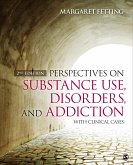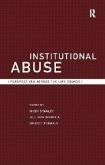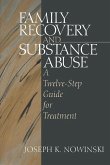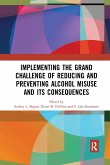Substance Use, End-of-Life Care and Multiple Deprivation
Practice and Research
Herausgeber: Witham, Gary; Galvani, Sarah; Wright, Sam; Yarwood, Gemma A.
Substance Use, End-of-Life Care and Multiple Deprivation
Practice and Research
Herausgeber: Witham, Gary; Galvani, Sarah; Wright, Sam; Yarwood, Gemma A.
- Broschiertes Buch
- Merkliste
- Auf die Merkliste
- Bewerten Bewerten
- Teilen
- Produkt teilen
- Produkterinnerung
- Produkterinnerung
Focusing on end-of-life care for people who use, or have used, substances, this book explores their social and health care needs and the multiple disadvantages they have often experienced, discussing the complexities around access to care that result.
Andere Kunden interessierten sich auch für
![Perspectives on Substance Use, Disorders, and Addiction Perspectives on Substance Use, Disorders, and Addiction]() Margaret A FettingPerspectives on Substance Use, Disorders, and Addiction225,99 €
Margaret A FettingPerspectives on Substance Use, Disorders, and Addiction225,99 €![Another Twinkle in the Eye Another Twinkle in the Eye]() Elaine HanzakAnother Twinkle in the Eye48,99 €
Elaine HanzakAnother Twinkle in the Eye48,99 €![Institutional Abuse Institutional Abuse]() Institutional Abuse88,99 €
Institutional Abuse88,99 €![Family Recovery and Substance Abuse Family Recovery and Substance Abuse]() Joseph K NowinskiFamily Recovery and Substance Abuse183,99 €
Joseph K NowinskiFamily Recovery and Substance Abuse183,99 €![Health Care and Immigration Health Care and Immigration]() Health Care and Immigration65,99 €
Health Care and Immigration65,99 €![The International Handbook of Art Therapy in Palliative and Bereavement Care The International Handbook of Art Therapy in Palliative and Bereavement Care]() The International Handbook of Art Therapy in Palliative and Bereavement Care138,99 €
The International Handbook of Art Therapy in Palliative and Bereavement Care138,99 €![Implementing the Grand Challenge of Reducing and Preventing Alcohol Misuse and its Consequences Implementing the Grand Challenge of Reducing and Preventing Alcohol Misuse and its Consequences]() Implementing the Grand Challenge of Reducing and Preventing Alcohol Misuse and its Consequences59,99 €
Implementing the Grand Challenge of Reducing and Preventing Alcohol Misuse and its Consequences59,99 €-
-
-
Focusing on end-of-life care for people who use, or have used, substances, this book explores their social and health care needs and the multiple disadvantages they have often experienced, discussing the complexities around access to care that result.
Hinweis: Dieser Artikel kann nur an eine deutsche Lieferadresse ausgeliefert werden.
Hinweis: Dieser Artikel kann nur an eine deutsche Lieferadresse ausgeliefert werden.
Produktdetails
- Produktdetails
- Verlag: Taylor & Francis Ltd
- Seitenzahl: 196
- Erscheinungstermin: 27. Mai 2024
- Englisch
- Abmessung: 234mm x 156mm
- Gewicht: 410g
- ISBN-13: 9781032372921
- ISBN-10: 1032372923
- Artikelnr.: 70355040
- Herstellerkennzeichnung
- Libri GmbH
- Europaallee 1
- 36244 Bad Hersfeld
- gpsr@libri.de
- Verlag: Taylor & Francis Ltd
- Seitenzahl: 196
- Erscheinungstermin: 27. Mai 2024
- Englisch
- Abmessung: 234mm x 156mm
- Gewicht: 410g
- ISBN-13: 9781032372921
- ISBN-10: 1032372923
- Artikelnr.: 70355040
- Herstellerkennzeichnung
- Libri GmbH
- Europaallee 1
- 36244 Bad Hersfeld
- gpsr@libri.de
Gary Witham is a Senior Lecturer in Nursing at Manchester Metropolitan University, UK. His research interests are exploring marginalised populations' experiences and access to palliative and end-of-life care services. Specifically, he has co-investigated the experiences of people using substances at the end of life, their carers and family as well as health and social care professionals. He has also worked on projects exploring the implementation of good practice models of care related to support people using substances at the end of life. Sarah Galvani is Professor of Substance Use and Social Research at Manchester Metropolitan University, UK. Sarah is a social worker by profession, having started out working as a volunteer in the UK and USA with homeless people with mental ill health and/or people who use alcohol or other drugs. As an academic, she currently leads work on end-of-life and palliative care for people using substances and focusses on substance-related research among marginalised populations. Sam Wright joined Professor Sarah Galvani and a multi-disciplinary team at Manchester Metropolitan University in 2016 to work on a large exploratory study focussing on end-of-life care for people with alcohol and other drug problems. Her main focus has been interviewing people approaching the end of life, their family caregivers and the health practitioners working with them. More recently she has been helping to develop a new model of end-of-life care for people using substances in Liverpool and Sefton (UK) and also evaluating effective ways of supporting people who are street homeless. Gemma A. Yarwood is a Senior Lecturer in Criminology and Sociology, Manchester Metropolitan University, UK. A key focus of Gemma's research is end-of-life care and substance use. Her research informs the core curriculum of the top 10 rated MA/MSc/BA/BSc Criminology and Sociology degrees which she delivers at Manchester Metropolitan University. She has written for many publications, including journal articles, website content, book chapters, reports for various organisations and national charities.
1.Introduction. Part I: Different voices (Introduction by Gary Witham).
2.Death is not an abstract now: approaching end of life as someone using
substances. 3.Views from the coalface: social and health care professionals
working with people using substances at, or near, the end of their lives.
4.Seeing the common ground: family and practitioner caregivers'
perspectives of palliative care for people using substances. Part II:
Health inequalities (Introduction by Sam Wright). 5.Health literacy and
substance use within palliative and end-of-life care. 6.Learning
disabilities and substance use at the end of life: listening to the unheard
. 7.Improving end-of-life care for people with co-existing mental health
and substance use. 8.Ageing (dis)gracefully: People who inject drugs living
with hepatitis C and the provision of end-of-life care. Part III: Social
inequalities (Introduction by Sarah Galvani). 9.Homelessness and substance
use within palliative and end-of-life care. 10 - Jane's journey: substance
use, palliative care and sex work. 11.Reflecting on the challenges and
inequalities facing Black and minoritized communities in accessing
substance use services, palliative and end-of-life care. 12.Unequal in life
and death: substance use, disadvantage and end-of-life care in prison.
13.Reflections and recommendations: multiple disadvantage, substance use
and end-of-life care.
2.Death is not an abstract now: approaching end of life as someone using
substances. 3.Views from the coalface: social and health care professionals
working with people using substances at, or near, the end of their lives.
4.Seeing the common ground: family and practitioner caregivers'
perspectives of palliative care for people using substances. Part II:
Health inequalities (Introduction by Sam Wright). 5.Health literacy and
substance use within palliative and end-of-life care. 6.Learning
disabilities and substance use at the end of life: listening to the unheard
. 7.Improving end-of-life care for people with co-existing mental health
and substance use. 8.Ageing (dis)gracefully: People who inject drugs living
with hepatitis C and the provision of end-of-life care. Part III: Social
inequalities (Introduction by Sarah Galvani). 9.Homelessness and substance
use within palliative and end-of-life care. 10 - Jane's journey: substance
use, palliative care and sex work. 11.Reflecting on the challenges and
inequalities facing Black and minoritized communities in accessing
substance use services, palliative and end-of-life care. 12.Unequal in life
and death: substance use, disadvantage and end-of-life care in prison.
13.Reflections and recommendations: multiple disadvantage, substance use
and end-of-life care.
1.Introduction. Part I: Different voices (Introduction by Gary Witham).
2.Death is not an abstract now: approaching end of life as someone using
substances. 3.Views from the coalface: social and health care professionals
working with people using substances at, or near, the end of their lives.
4.Seeing the common ground: family and practitioner caregivers'
perspectives of palliative care for people using substances. Part II:
Health inequalities (Introduction by Sam Wright). 5.Health literacy and
substance use within palliative and end-of-life care. 6.Learning
disabilities and substance use at the end of life: listening to the unheard
. 7.Improving end-of-life care for people with co-existing mental health
and substance use. 8.Ageing (dis)gracefully: People who inject drugs living
with hepatitis C and the provision of end-of-life care. Part III: Social
inequalities (Introduction by Sarah Galvani). 9.Homelessness and substance
use within palliative and end-of-life care. 10 - Jane's journey: substance
use, palliative care and sex work. 11.Reflecting on the challenges and
inequalities facing Black and minoritized communities in accessing
substance use services, palliative and end-of-life care. 12.Unequal in life
and death: substance use, disadvantage and end-of-life care in prison.
13.Reflections and recommendations: multiple disadvantage, substance use
and end-of-life care.
2.Death is not an abstract now: approaching end of life as someone using
substances. 3.Views from the coalface: social and health care professionals
working with people using substances at, or near, the end of their lives.
4.Seeing the common ground: family and practitioner caregivers'
perspectives of palliative care for people using substances. Part II:
Health inequalities (Introduction by Sam Wright). 5.Health literacy and
substance use within palliative and end-of-life care. 6.Learning
disabilities and substance use at the end of life: listening to the unheard
. 7.Improving end-of-life care for people with co-existing mental health
and substance use. 8.Ageing (dis)gracefully: People who inject drugs living
with hepatitis C and the provision of end-of-life care. Part III: Social
inequalities (Introduction by Sarah Galvani). 9.Homelessness and substance
use within palliative and end-of-life care. 10 - Jane's journey: substance
use, palliative care and sex work. 11.Reflecting on the challenges and
inequalities facing Black and minoritized communities in accessing
substance use services, palliative and end-of-life care. 12.Unequal in life
and death: substance use, disadvantage and end-of-life care in prison.
13.Reflections and recommendations: multiple disadvantage, substance use
and end-of-life care.








